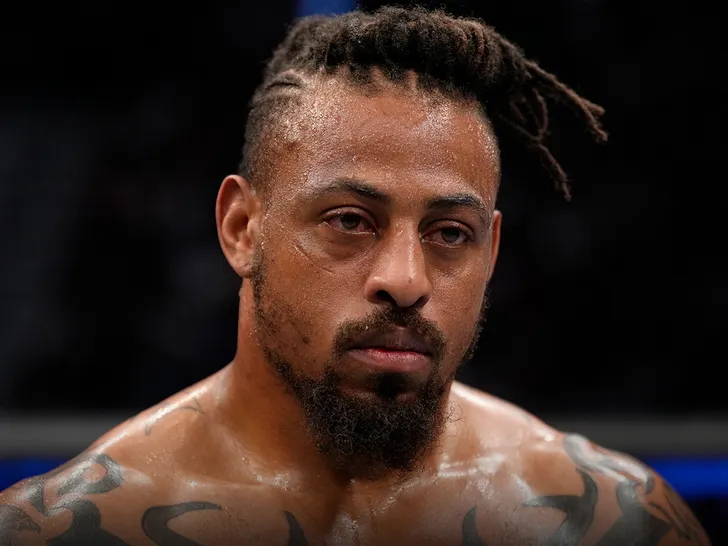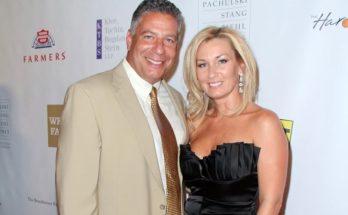Greg Hardy, the former defensive end for the Carolina Panthers, has once again found himself at the center of controversy after being arrested for allegedly assaulting a family member. This latest incident marks a troubling chapter in the life of a professional athlete whose career has been overshadowed by off-the-field legal troubles and allegations of violence. Hardy’s arrest has ignited renewed discussions about athlete behavior, accountability, and the ongoing challenge professional sports leagues face when dealing with players accused of serious misconduct.
Gregory Hardy first burst onto the NFL scene as a powerful defensive end, drafted by the Carolina Panthers in the sixth round of the 2010 NFL Draft. Known for his fierce pass-rushing ability and aggressive play style, Hardy quickly became a fan favorite and a critical component of the Panthers’ defense. His on-field prowess was undeniable, helping lead the team to several playoff appearances, including a memorable run to Super Bowl 50. However, Hardy’s promising football career has been consistently marred by serious off-field issues, notably related to domestic violence allegations that have repeatedly attracted media attention and public scrutiny.
The most notable incident in Hardy’s troubled history occurred in 2014 when he was charged with assaulting his then-girlfriend. The case quickly became a major news story, polarizing fans, the media, and the NFL community. Hardy was initially convicted of assault and communicating threats, but the conviction was later overturned on appeal due to concerns over the handling of evidence and procedural issues. Despite the legal outcome, the allegations severely damaged Hardy’s reputation and cast a shadow over his athletic accomplishments. Many critics and advocates for domestic violence awareness viewed the case as emblematic of a larger problem in professional sports, where athletes sometimes receive leniency or are shielded from consequences due to their status.
Following the 2014 case, Hardy’s career took a tumultuous path. The Carolina Panthers released him, and the NFL suspended him for ten games due to violations of the league’s personal conduct policy. Hardy then signed with the Dallas Cowboys, attempting to rebuild his career and public image. Though he showed flashes of his former dominant self on the field, the stigma from his past continued to follow him, and many questioned whether the NFL and its teams were adequately addressing the serious nature of his prior allegations.
The latest arrest, involving accusations of assault against a family member, brings Hardy’s history of violence and legal troubles back into the spotlight. According to law enforcement reports, Hardy was taken into custody following an alleged incident where he assaulted a relative during a domestic dispute. While details are still emerging, this development raises serious concerns not only about Hardy’s personal conduct but also about the support systems in place for athletes who face repeated behavioral issues.
This incident also adds fuel to the ongoing debate surrounding professional sports leagues’ responses to players accused of domestic violence or other violent acts. Critics argue that leagues, including the NFL, have at times been inconsistent or insufficient in disciplining players, creating an environment where some athletes feel emboldened to engage in harmful behavior without fear of lasting consequences. Advocates for victims of domestic violence emphasize the need for strict and transparent policies that prioritize the safety and dignity of individuals affected by such abuse.
Moreover, Hardy’s arrest highlights the challenges that arise when athletes, despite talent and potential, struggle with personal issues that spill into the public domain. The intense pressure, scrutiny, and fame that come with professional sports can sometimes exacerbate underlying problems or lead to destructive behaviors. Mental health experts have long called for more comprehensive support for athletes, including counseling, education, and intervention programs designed to prevent violence and promote healthier coping mechanisms.
In examining Hardy’s trajectory, it becomes clear that his football talent has often been overshadowed by his off-field conduct. While his skills as a defensive end earned him accolades and a lucrative career, his repeated legal issues have undermined his legacy and raised uncomfortable questions about accountability in professional sports. For some fans, Hardy represents a cautionary tale of how unchecked behavior can derail even the most promising athletic careers. For others, his story is a reminder of the importance of separating personal failings from professional achievements, while still holding individuals accountable for their actions.
As the legal process unfolds, it remains to be seen what consequences Hardy will face as a result of this latest arrest. The criminal justice system will determine whether the charges against him hold and what penalties may be appropriate. Additionally, if Hardy is still active in professional sports, leagues and teams will likely need to reevaluate their stance and response, balancing legal outcomes with organizational values and public perception.
Beyond the individual case, Hardy’s arrest underscores the broader societal issue of domestic violence and family abuse. These problems affect millions of people across the country and the world, transcending social status, profession, and background. High-profile cases involving athletes help raise awareness and can sometimes spur positive changes, including stronger laws, improved victim support services, and more informed public discourse. However, they also serve as a reminder that much work remains to be done to address the root causes of violence and provide meaningful prevention and intervention strategies.
The role of the media in reporting such incidents is also significant. Coverage of Hardy’s arrest and past allegations shapes public opinion and influences the narrative around accountability and redemption. Responsible journalism requires a careful balance between reporting facts, respecting the privacy and rights of those involved, and avoiding sensationalism that could exacerbate harm or stigma. As the story develops, ongoing coverage should aim to inform the public while encouraging constructive conversations about violence prevention and athlete conduct.
For the Carolina Panthers and other NFL teams, Hardy’s situation is a reminder of the importance of vetting players not just for their athletic ability but for their character and behavior off the field. Teams have a responsibility to create environments that promote respect, integrity, and safety for all individuals. This includes implementing robust education programs, enforcing codes of conduct, and being willing to take decisive action when players violate standards.
Fans and the broader sports community also play a role in shaping the culture around such issues. Supporting victims, condemning violence, and holding athletes accountable contribute to healthier and more respectful sporting environments. While it can be difficult to reconcile admiration for athletic talent with disappointment in personal conduct, fostering a culture of accountability benefits everyone involved.
Greg Hardy’s story, marked by athletic success and serious personal failings, is a complex and troubling one. His recent arrest for allegedly assaulting a family member adds a new chapter to a narrative that has been fraught with controversy and pain. It challenges fans, leagues, and society to consider how best to address violence and misconduct, particularly when it involves high-profile individuals. Ultimately, it is a call to action for greater awareness, prevention, and accountability, with the goal of ensuring that talent and fame do not excuse harmful behavior.
As the situation develops, all eyes will be on the legal proceedings, the response from the NFL and other professional organizations, and the broader conversations this case may inspire. Greg Hardy’s future, both personally and professionally, hangs in the balance as the consequences of this latest arrest unfold. Whether this incident becomes a turning point for change or another unfortunate episode in a troubled career remains to be seen, but it is clear that the impact of his actions reaches far beyond the football field.



